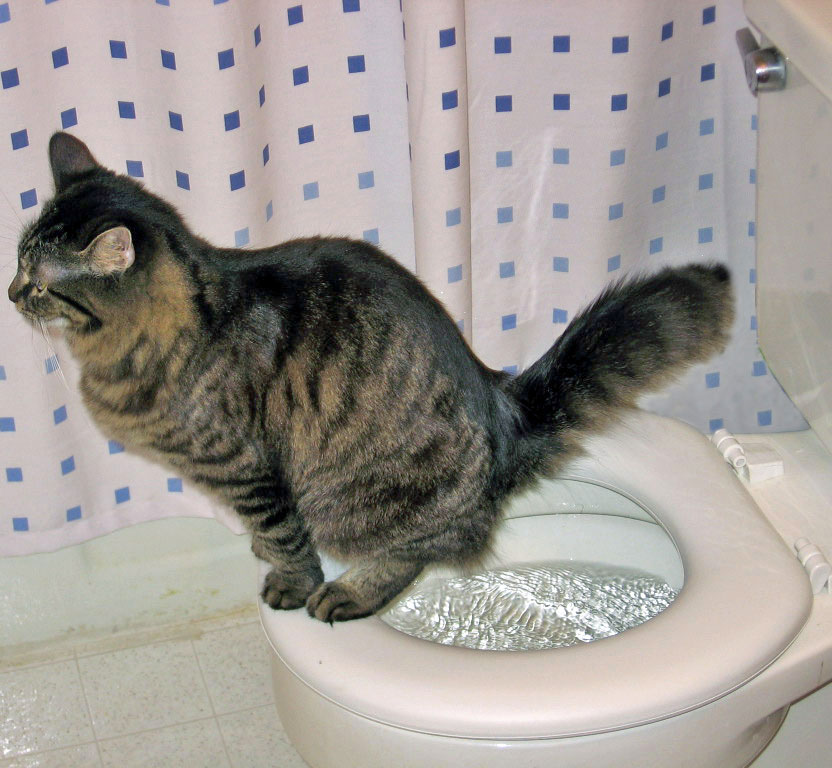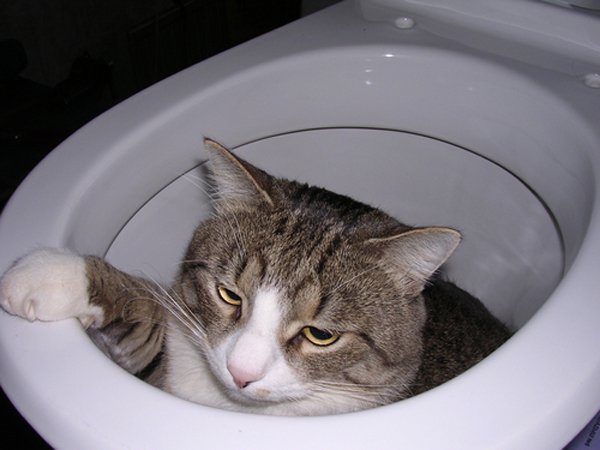Prevent Bathroom Disasters: Don't Flush Cat Poop Down Your Toilet - Professional Guidance
Prevent Bathroom Disasters: Don't Flush Cat Poop Down Your Toilet - Professional Guidance
Blog Article
On this page below you'll find some awesome guidance when it comes to How to Dispose of Cat Poop and Litter Without Plastic Bags.

Introduction
As cat owners, it's necessary to be mindful of exactly how we deal with our feline good friends' waste. While it might seem hassle-free to flush pet cat poop down the toilet, this method can have detrimental effects for both the environment and human health.
Alternatives to Flushing
The good news is, there are safer and a lot more responsible means to deal with cat poop. Consider the adhering to options:
1. Scoop and Dispose in Trash
One of the most usual technique of getting rid of feline poop is to scoop it right into a biodegradable bag and toss it in the garbage. Be sure to use a specialized clutter inside story and deal with the waste quickly.
2. Use Biodegradable Litter
Select biodegradable cat trash made from materials such as corn or wheat. These clutters are eco-friendly and can be securely dealt with in the garbage.
3. Bury in the Yard
If you have a backyard, think about burying cat waste in a marked location far from veggie yards and water resources. Be sure to dig deep adequate to avoid contamination of groundwater.
4. Set Up a Pet Waste Disposal System
Buy a pet garbage disposal system particularly developed for feline waste. These systems use enzymes to break down the waste, lowering odor and ecological effect.
Health Risks
Along with environmental concerns, purging feline waste can additionally present health dangers to people. Feline feces may consist of Toxoplasma gondii, a parasite that can cause toxoplasmosis-- a potentially extreme health problem, particularly for expectant ladies and individuals with damaged body immune systems.
Ecological Impact
Flushing feline poop presents dangerous pathogens and parasites right into the water, positioning a substantial danger to aquatic communities. These contaminants can adversely affect aquatic life and concession water high quality.
Final thought
Liable pet ownership prolongs past providing food and sanctuary-- it also includes appropriate waste monitoring. By refraining from purging cat poop down the bathroom and opting for different disposal techniques, we can lessen our ecological impact and protect human health and wellness.
Why You Should Never Flush Cat Poop Down the Toilet
A rose by any other name might smell as sweet, but not all poop is created equal. Toilets, and our sewage systems, are designed for human excrement, not animal waste. It might seem like it couldn’t hurt to toss cat feces into the loo, but it’s not a good idea to flush cat poop in the toilet.
First and foremost, assuming your cat uses a litter box, any waste is going to have litter on it. And even the smallest amount of litter can wreak havoc on plumbing.
Over time, small amounts build up, filling up your septic system. Most litter sold today is clumping; it is made from a type of clay that hardens when it gets wet. Ever tried to scrape old clumps from the bottom of a litter box? You know just how cement-hard it can get!
Now imagine just a small clump of that stuck in your pipes. A simple de-clogger like Drano isn’t going to cut it. And that means it’s going to cost you big time to fix it.
Parasitic Contamination
Believe it or not, your healthy kitty may be harboring a nasty parasite. Only cats excrete Toxoplasma in their feces. Yet it rarely causes serious health issues in the cats that are infected. Most people will be fine too if infected. Only pregnant women and people with compromised immune systems are at risk. (If you’ve ever heard how women who are expecting are excused from litter cleaning duty, Toxoplasma is why.)
But other animals may have a problem if infected with the parasite. And human water treatment systems aren’t designed to handle it. As a result, the systems don’t remove the parasite before discharging wastewater into local waterways. Fish, shellfish, and other marine life — otters in particular — are susceptible to toxoplasma. If exposed, most will end up with brain damage and many will die.
Depending on the species of fish, they may end up on someone’s fish hook and, ultimately on someone’s dinner plate. If that someone has a chronic illness, they’re at risk.
Skip the Toilet Training
We know there are folks out there who like to toilet train their cats. And we give them props, it takes a lot of work. But thanks to the toxoplasma, it’s not a good idea.

We hope you enjoyed our excerpt about How to Dispose of Cat Poop and Litter Without Plastic Bags. Thanks for finding the time to read through our short article. Do you know about another individual who is inquisitive about the subject? Take a moment to share it. I am grateful for your time. Don't forget to visit our blog back soon.
Call Today Report this page